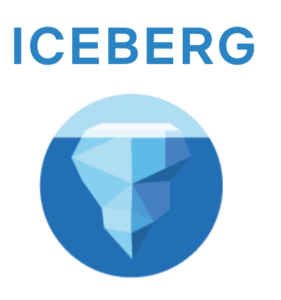(Zakharchuk/Shutterstock)
It is that point of yr once more: time to make predictions! We start the bonanza of forecasts, estimates and forecasts for 2025 with a subject that pursuits us quite a bit right here at BigDATAwire: information evaluation.
The world has seen all types of analytics patterns: information lakes, information warehouses, in-memory analytics, and embedded analytics. However in 2025, the usual for analytics would be the information lake, says Emmanuel Darras, CEO and co-founder of Kestradeveloper of an open supply orchestration platform.
“By 2025, greater than half of all analytics workloads are anticipated to run on lakehouse architectures, pushed by the associated fee financial savings and suppleness they provide,” says Darras. “Enterprises at present are transferring from cloud information warehouses to lakes, not solely to save cash however to simplify information entry patterns and cut back the necessity for duplicate information storage. “Giant organizations have reported financial savings of greater than 50%, an enormous win for these with important information processing wants.”
One of many huge drivers of the info lake is the standardization of open information codecs. That is a development that can proceed to develop in 2025, predicts Adam Bellemare, principal technologist on the Expertise Technique Group at Confluent.
“Subsequent yr we are going to see widespread standardization of open information codecs, equivalent to Apache Iceberg, Delta Lake, and Apache Hudi,” says Bellemare. “This will likely be pushed by elevated demand for interoperability, as firms will look to seamlessly mix information between completely different platforms, companions and suppliers. As companies prioritize entry to high-quality, well timed information, open information codecs will now not be optionally available however crucial for companies to succeed. Those that don’t undertake these open requirements danger dropping a aggressive benefit, and those that do undertake them will be capable to provide a high-quality providing and cross-platform information data in actual time.”
Two of the most important backers of the info lake home are Snowflake and Knowledge bricks. However by 2025, folks will tire of the Snowflake/Databrick struggle and look to federated IT for an developed information structure, says Andrew Madson, technical evangelist at Dremio and professor of knowledge and analytics at Southern New Hampshire and Grand Canyon Universities.
“Central IT groups will proceed to decentralize tasks to enterprise items, creating extra federated working fashions,” says Madson. “In the meantime, monolithic architectures from main distributors like Snowflake and Databricks will combine extra instruments aimed toward enhancing cost-effectiveness and efficiency, creating hybrid ecosystems that steadiness innovation and practicality.”
Knowledge modeling has been mired in relative obscurity for years. In 2025, the observe can have its second within the solar, says Adi Polak, director of developer expertise advocacy and engineering at Confluent.
“Knowledge modeling has lengthy been the area of DBAs (database directors), however with the rising adoption of open desk codecs like Apache Iceberg, information modeling is a talent that extra engineers have to grasp,” Polak says. “For utility growth, engineers are more and more tasked with creating reusable information merchandise, supporting real-time and batch workloads whereas anticipating downstream consumption patterns. To construct these information merchandise successfully, engineers should perceive how the info will likely be used and design the proper construction or mannequin, that’s appropriate for consumption, from the start. That is why information modeling will likely be a vital talent that engineers might want to grasp over the following yr.
There may be one subject that will likely be inconceivable to keep away from in 2025: AI (sure, we can have an article on AI predictions for 2025 quickly). The impression of AI will likely be felt all over the place, together with the info analytics stack, says Christian Buckner, senior vp of analytics and IoT at Altair.
“At this time, many enterprise leaders battle with understanding what inquiries to ask their information or the place to search out the solutions,” says Buckner. “AI brokers are altering that by offering data and suggestions mechanically, while not having anybody to ask. This degree of automation will likely be essential in serving to organizations unlock deeper understanding and connections inside their information and empower them to make extra strategic choices to realize enterprise benefit. “It is necessary for firms to place in place boundaries to regulate AI-driven options and keep confidence within the outcomes.”
Once I mentioned “evaluation,” I used to conjure up pictures of somebody activating a desktop BI instrument to work with a piece of knowledge from the warehouse. Wow, instances have modified. In accordance Sisense CEO Ariel Katz, 2025 will carry the demise of conventional BI, which will likely be changed by analytics built-in with APIs and GenAI in each utility.
“By 2025, conventional BI instruments will turn out to be out of date as API-first and GenAI architectures seamlessly combine real-time analytics into each utility,” says Katz. “Knowledge insights will movement instantly into CRMs, productiveness platforms and buyer instruments, enabling staff in any respect ranges to make data-driven choices immediately, with out the necessity for technical experience. “Companies that embrace this modification will unlock unprecedented productiveness and buyer experiences, abandoning static dashboards and siled methods.”
Massive information was huge as a result of… nicely, it simply was (belief us). However in 2025, the massive information motion will open a brand new chapter by welcoming a relative of massive information known as huge information, predicts Francois Ajenstat, chief product officer at Amplitude.
“Latest years have seen a rise in information volumes, however 2025 will transfer from ‘huge information’ to ‘small information’,” says Ajenstat. “We’re already seeing this shift in mindset with giant language fashions giving strategy to smaller language fashions. Organizations are realizing that they need not present all their information to resolve an issue or full an initiative: they should present the proper information. The overwhelming abundance of knowledge, also known as the “information swamp,” has made it troublesome to extract significant insights. By specializing in higher-quality, extra particular information (or the “information pond”), organizations can guarantee information reliability and accuracy. “This shift towards smaller, extra related information will assist speed up evaluation timelines, get extra folks utilizing information, and drive higher return on information funding.”
It is all the time been nice to have top quality information. However in 2025, having high-quality information will turn out to be a enterprise crucial, says Rajan Goyal, CEO and co-founder of DataPelago.
“We’re seeing increasingly more stories that LLM suppliers are scuffling with mannequin slowdown and the AI scaling regulation is more and more being questioned,” says Goyal. “As this development continues, subsequent yr it will likely be accepted that the important thing to creating, coaching and tuning simpler AI fashions is now not extra information however higher information. Specifically, high-quality contextual information that aligns with a mannequin’s meant use case will likely be key. Past simply mannequin builders, this development will place higher accountability on the top clients who personal the vast majority of this information to modernize their information administration architectures for present AI necessities, to allow them to successfully alter the fashions and energy RAG workloads.”
Knowledge silos are like mushrooms: they seem naturally with none human intervention. However in 2025, firms should management the expansion of knowledge silos in the event that they need to succeed, says Molly Presley, senior vp of worldwide advertising at hammer house.
“In 2025, breaking down information silos will emerge as a important architectural concern for information engineers and AI architects,” Presley writes. “The flexibility to mixture and unify disparate information units throughout organizations will likely be important to driving superior analytics, AI and machine studying.” initiatives. As the quantity and variety of knowledge sources continues to develop, overcoming these silos will likely be essential to allow the holistic insights and decision-making that fashionable AI methods demand.”
Managing consumer entry to information typically seems like every thing is all over the place without delay. As an alternative of combating the dispersion of employees and information, in 2025 groups will discover ways to extra successfully leverage instruments like streaming information to be extra productive, predicts Arcitecta CEO Jason Lohrey.
“The rise of distant work and geographically distributed groups has modified the best way companies function,” says Lohrey. “Actual-time information streaming permits organizations to file occasions and share reside streams globally, permitting staff to collaborate on steady information streams while not having to be bodily current. This development is more likely to speed up in 2025 as extra firms undertake instruments that facilitate seamless information transmission and distribution. By enabling real-time collaboration amongst a distributed workforce, firms can cut back journey prices, enhance effectivity, and make quicker, extra knowledgeable choices. The worldwide attain of knowledge streaming expertise will develop, permitting organizations to faucet right into a broader expertise pool and create extra dynamic and versatile operational constructions.”





